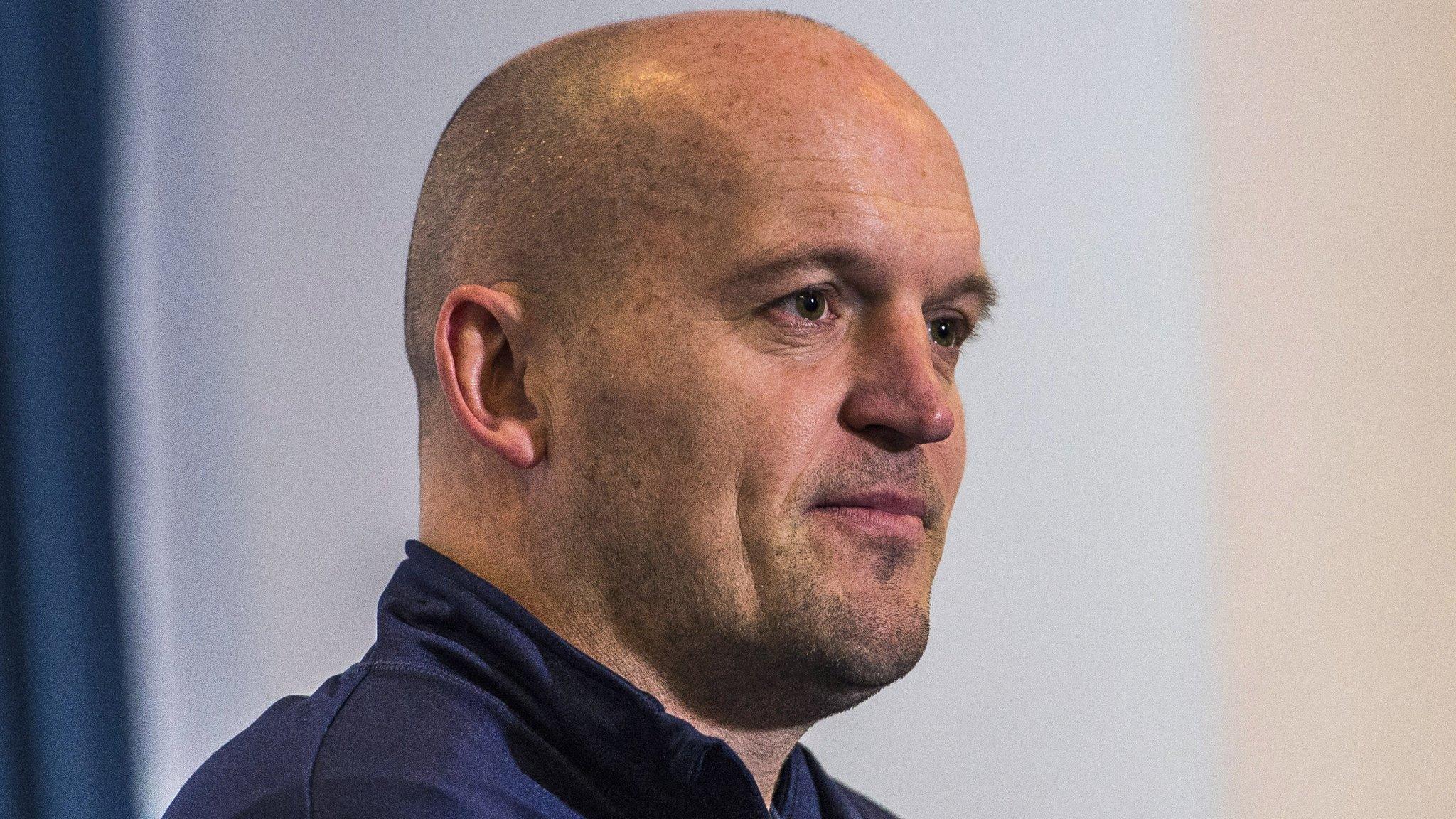Six Nations 2018: Scotland must be better than autumn to win title - Gregor Townsend
- Published
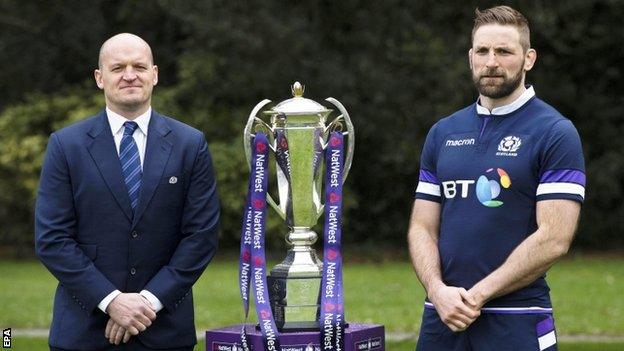
Gregor Townsend (left) was part of Scotland's final Five Nations triumph in 1999 but is entering his first Six Nations campaign as head coach
Head coach Gregor Townsend believes Scotland will need to play better than they did in the autumn to have a chance of winning the Six Nations title.
Scotland took New Zealand to the wire before thrashing Australia by a record margin in their final November Test.
"We are well aware this tournament is going to be very difficult. It is the best rugby tournament in the world on a yearly basis," Townsend said.
"We will have to play even better than in November if we are going to win."
Townsend highlighted the challenge of facing a "hugely experienced" Wales side in their opening game on 3 February in Cardiff, where Scotland have not won in eight attempts since 2002.
Six of the Best: Wales v Scotland
But after breaking a 10-year losing run against the Welsh at Murrayfield in last year's tournament, and following the buoyancy of their autumn displays, Townsend is happy to embrace the positive feeling surrounding his side.
"I believe optimism can be a competitive advantage," he told BBC Sport. "The role of a coach in any team is to create a feeling of optimism; you want your players to believe that what they have done - whether it is in previous games or in training - puts them in a good position to win on the weekend.
"We can certainly refer to victories and performances and the way we train to create that optimism going into this tournament."
Captain John Barclay admits he feels a weight of pressure given the expectation around Scotland's chances, a far cry from his first experience of the Six Nations in 2008.
"Things are very different now," he said. "The training methods are very different, the depth we have got now is very different. Perhaps there was more hope back in the day, whereas now there is a bit more expectation.
10 of Scotland's best Six Nations tries
"That comes with pressure and as captain I feel that, but it also brings a lot of excitement.
"We know if we perform well, we can put ourselves in a very good position. But we are not naive enough to think that other countries are not thinking the same thing.
"Other countries in the Six Nations had good autumns as well, and have had years upon years of success in the Six Nations. So we are just scratching the surface of that, really."
Barclay. who captained Scotland for the first time in their win over Wales at Murrayfield last year, led Scarlets to a thrilling Pro14 title triumph last season, while the Welsh region have also reached the quarter-finals of this season's European Champions Cup.
The 31-year-old, who will return to Scotland with Edinburgh next season, admits he has an insight into some of the opponents he will face in Cardiff, but has played down the benefits.
"As an individual at club level, I am benefitting massively from the success Scarlets have had," he added. "I am playing some big games for a club that is really thriving and has a really positive culture.
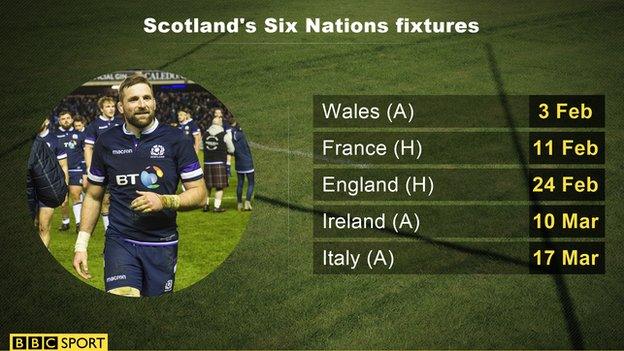
"When I come up to Scotland, it gives me an insight into perhaps the mindset of the players, some of their traits, strengths and weaknesses. It is mainly strengths, because they are playing very well at the moment.
"But ultimately it is a totally different team [Wales], they are coached differently, it is a different set-up, different style of play, so I guess the insight it gives me is quite minimal."
With home games to follow against France and England, Barclay hopes the Murrayfield crowd will again warm to Scotland's high-energy, high-tempo style that produced 16 tries in their three November matches.
"We enjoy it as players," he added. "We could feel it in the autumn - the fans were thriving off what we were trying to do.
"The crowd enjoyed it but the players are thriving off what the crowd are doing, so it works both ways."
- Published1 February 2017
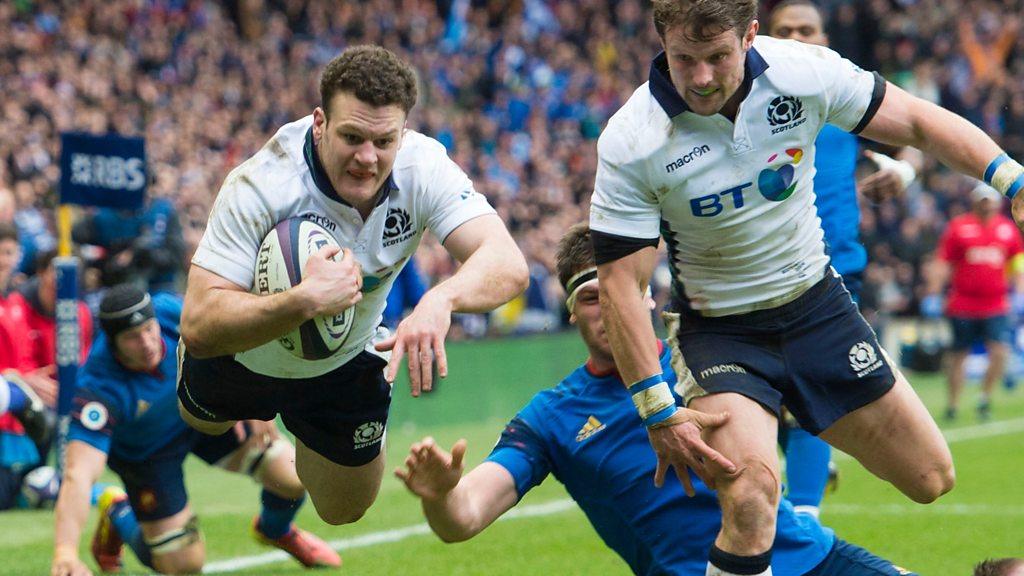
- Published24 January 2018

- Published24 January 2018
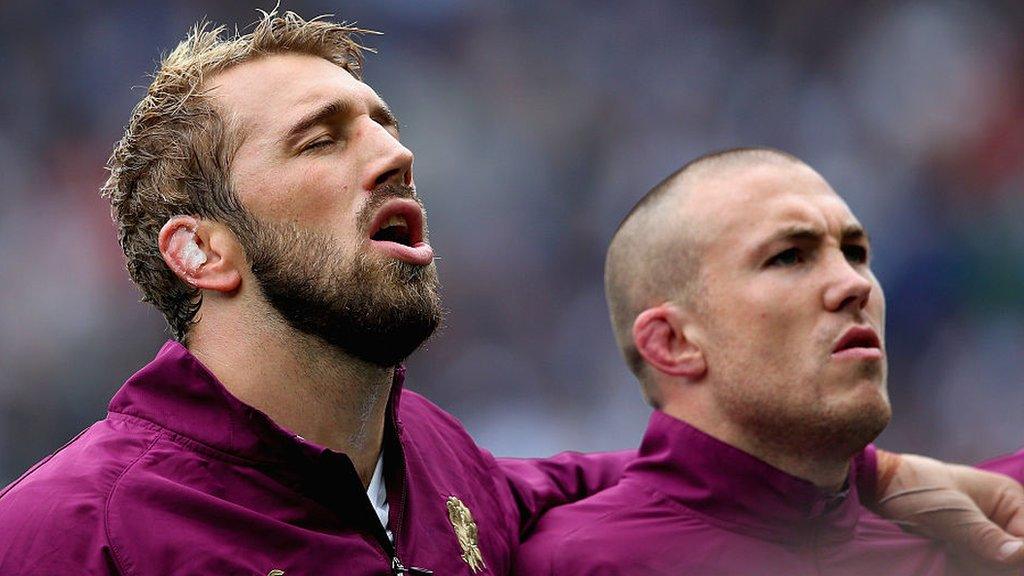
- Published16 January 2018
